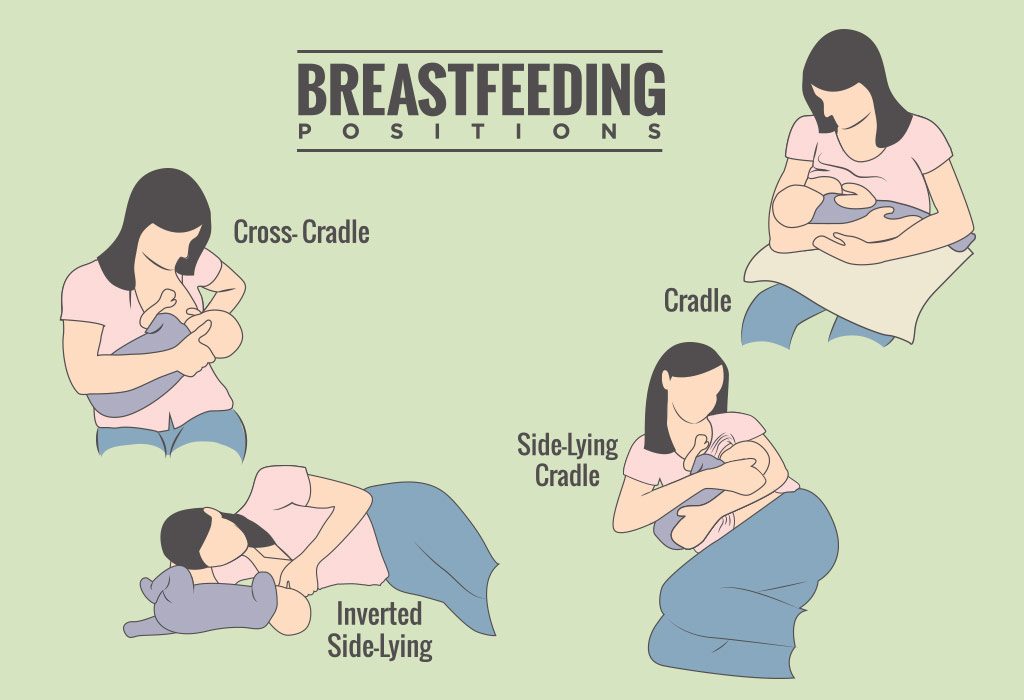Becoming a parent is a remarkable journey marked by the awe-inspiring development of your little one. Babies grow, change, and achieve incredible milestones at a breathtaking pace. In this comprehensive guide, we’ll delve into the intricacies of your baby’s development, from the early stages to significant milestones, providing valuable insights for every parent.
Early Stages of Development: The Foundation of Growth
- Newborn Stage (0-3 months):
- The first few months are a period of adjustment for both parents and baby. Newborns are highly dependent on caregivers for all their needs.
- During this stage, babies develop basic reflexes, such as rooting, sucking, and grasping. They also begin to distinguish voices and respond to visual stimuli.
- Infant Stage (4-6 months):
- As babies approach the half-year mark, they start exhibiting more intentional movements. Activities like reaching for objects and rolling over become common.
- Many infants begin teething during this stage, leading to increased drooling and a tendency to explore objects through mouthing.
- Crawling and Exploration (7-9 months):
- The adventure of mobility begins as babies learn to crawl. They become more curious about their surroundings, actively reaching for and exploring objects.
- This stage often involves the emergence of the pincer grasp, allowing babies to pick up small items between their thumb and forefinger.
- Standing and First Steps (10-12 months):
- The transition from crawling to standing marks a significant milestone. Many babies start pulling themselves up on furniture and may take their first wobbly steps.
- Communication skills also progress, with babies babbling and responding to simple commands or gestures.
Physical Development: Nurturing Motor Skills
- Gross Motor Skills:
- Encourage the development of gross motor skills by providing opportunities for activities like tummy time, crawling, and standing.
- Use age-appropriate toys and play equipment to stimulate physical movement and coordination.
- Fine Motor Skills:
- Foster fine motor skills by introducing toys that require grasping, stacking, and manipulating small objects.
- Activities such as finger painting, stacking blocks, and turning pages in a board book support the refinement of fine motor skills.
- Sensory Development:
- Explore sensory development through activities that engage sight, touch, taste, smell, and hearing.
- Sensory play, such as feeling different textures or listening to various sounds, stimulates the development of the nervous system.
Cognitive Development: Nurturing the Young Mind
- Visual Stimulation:
- Enhance visual development by providing high-contrast toys and colorful objects. Place these items within the baby’s line of sight during tummy time.
- As vision improves, introduce books with bold patterns and contrasting colors to stimulate visual exploration.
- Language Acquisition:
- Foster language development by engaging in conversations with your baby. Respond to their coos and babbling, and read books together to introduce new words.
- Use simple gestures and expressions to convey meaning, promoting early communication skills.
- Problem-Solving Skills:
- Encourage problem-solving by offering age-appropriate puzzles and toys that challenge your baby’s cognitive abilities.
- Allow time for independent play, where babies can explore and experiment with objects to develop problem-solving skills.
- Memory and Recognition:
- Play games that involve repetition and recognition to stimulate memory development. For example, show pictures of familiar faces or objects and ask your baby to identify them.
- Create routines to establish a sense of predictability, aiding memory retention.
Social and Emotional Development: Nurturing Bonds and Self-Awareness
- Attachment and Bonding:
- Strengthen the parent-child bond through responsive caregiving. Attend to your baby’s needs promptly, providing comfort and reassurance.
- Engage in activities like cuddling, singing, and gentle play to foster a sense of security and attachment.
- Social Interaction:
- Facilitate social interaction by arranging playdates with other babies or joining parent-baby groups. These interactions support the development of social skills and cooperation.
- Encourage simple games like peek-a-boo to enhance your baby’s understanding of social cues and turn-taking.
- Self-Expression:
- Support self-expression by observing and responding to your baby’s cues and gestures. This helps them develop a sense of agency and self-identity.
- Allow time for free play, where babies can explore their surroundings and express themselves through movement and interaction.
- Emotional Regulation:
- Help your baby develop emotional regulation by providing a comforting environment. Calmly respond to their needs during moments of distress, teaching them healthy ways to cope with emotions.
- Model emotional expression by expressing joy, affection, and patience, providing a positive example for your baby to emulate.
Feeding and Nutrition: Nourishing the Growing Body
- Breastfeeding or Formula Feeding:
- Support your baby’s nutritional needs through breastfeeding or formula feeding. Follow recommended guidelines for feeding frequency and amounts based on age.
- As your baby grows, introduce solid foods at around six months, starting with single-ingredient purees and gradually progressing to a variety of textures.
- Introducing Solids:
- Begin introducing solid foods based on your baby’s readiness. Look for signs such as sitting independently, showing interest in food, and losing the tongue-thrust reflex.
- Offer a variety of nutrient-rich foods, including fruits, vegetables, grains, and proteins, to support overall growth and development.
- Responsive Feeding:
- Practice responsive feeding by paying attention to your baby’s hunger and fullness cues. Allow them to self-regulate their intake, promoting a healthy relationship with food.
- Create a positive feeding environment, minimizing distractions and offering a relaxed atmosphere for mealtime.
Sleep Patterns: Understanding and Establishing Healthy Habits
- Newborn Sleep Patterns:
- Understand that newborns sleep for shorter durations and may wake frequently for feeding. Establish a flexible sleep routine that accommodates their needs.
- Create a conducive sleep environment by maintaining a comfortable room temperature and using soft, breathable bedding.
- Establishing a Bedtime Routine:
- Introduce a consistent bedtime routine to signal to your baby that it’s time to sleep. Activities like a warm bath, gentle lullabies, and dimming the lights can contribute to a soothing bedtime routine.
- Aim for a conducive sleep environment, minimizing noise and ensuring your baby’s sleep space is safe and comfortable.
- Transitioning to Regular Sleep Patterns:
- As your baby grows, they will naturally transition to more regular sleep patterns. Be patient and responsive to their evolving sleep needs.
- Encourage healthy sleep habits by establishing a consistent sleep schedule and creating a bedtime routine that signals the winding down of the day.
Celebrating Milestones: Cherishing Every Triumph
- First Words and Communication:
- Celebrate the excitement of your baby’s first words by engaging in conversation and responding enthusiastically.
- Foster language development through exposure to books, songs, and daily conversations that encourage verbal communication.
- Crawling and First Steps:
- Capture the joy of your baby’s newfound mobility by providing a safe environment for exploration.
- Create opportunities for crawling and walking, offering support and encouragement as your baby navigates these physical milestones.
- Independent Play:
- Acknowledge the development of independent play as your baby explores toys and engages in imaginative activities.
- Provide age-appropriate toys and games that encourage creativity and problem-solving.
- Social Interactions:
- Embrace the growing social skills of your baby as they initiate interactions with caregivers and peers.
- Facilitate playdates and group activities to nurture social development, emphasizing sharing and cooperation.
- Feeding Independence:
- Celebrate feeding milestones as your baby progresses from breast milk or formula to a varied diet of solid foods.
- Encourage self-feeding by introducing finger foods and allowing your baby to explore different tastes and textures.
- Emotional Expressiveness:
- Recognize your baby’s developing emotional expressiveness as they convey joy, excitement, and even frustration.
- Support emotional well-being by acknowledging and responding to your baby’s emotions, fostering a secure and trusting bond.
Parental Involvement: The Key to Nurturing Development
- Quality Time:
- Spend quality time with your baby through activities like reading, playing, and engaging in gentle interactions.
- Create a nurturing environment that fosters a sense of security and love, contributing to your baby’s overall well-being.
- Responsive Parenting:
- Practice responsive parenting by attentively meeting your baby’s needs. This includes promptly addressing hunger, discomfort, and emotional distress.
- Be attuned to your baby’s cues and signals, building a strong foundation for secure attachment.
- Educational Play:
- Integrate educational play into your daily routine by introducing age-appropriate toys and activities that stimulate cognitive development.
- Use playtime as an opportunity for bonding, learning, and fostering a love for exploration.
- Regular Check-ups:
- Schedule regular pediatric check-ups to monitor your baby’s growth and development. These appointments allow healthcare providers to assess milestones and address any concerns.
- Parental Support:
- Seek support from fellow parents, friends, and family members. Sharing experiences and advice can provide valuable insights and alleviate the challenges of parenting.
- Attend parenting classes or join online communities to connect with other parents and access resources that support your journey.
Conclusion: Embracing the Journey of Growth and Discovery
As you witness the marvels of your baby’s development, remember that each child is unique, and milestones may vary. Embrace the journey with patience, love, and a sense of wonder. Navigating the intricacies of physical, cognitive, and emotional development is a rewarding experience that strengthens the bond between parent and child. Cherish every triumph, seek support when needed, and revel in the joy of nurturing your baby through this extraordinary journey of growth and discovery.










